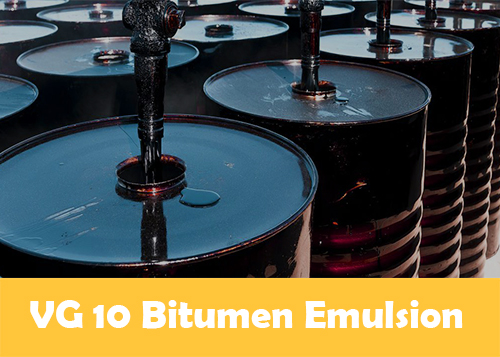Bitumen Paving Grade
Bitumen Paving Grade (Australian Standard)
Paving Bitumen or Asphalt concrete (commonly called Asphalt, Blacktop, or pavement in North America, and tarmac, bitumen macadam, or rolled asphalt) is a composite material commonly used to surface roads, parking lots, airports, and the core of embankment dams. Asphalt mixtures have been used in pavement construction since the beginning of the twentieth century. It consists of mineral aggregate bound together with asphalt, laid in layers, and compacted.
SKU: Bitumen, Bitumen Paving Grade

Paving Bitumen or Asphalt concrete (commonly called Asphalt, Blacktop, or pavement in North America, and tarmac, bitumen macadam, or rolled asphalt) is a composite material commonly used to surface roads, parking lots, airports, and the core of embankment dams. Asphalt mixtures have been used in pavement construction since the beginning of the twentieth century. It consists of mineral aggregate bound together with asphalt, laid in layers, and compacted.
Paving Bitumen Grade C170 is used for paving and sealing. There are more paving bitumen grades of bitumen like C240 and C320. Bitumen is a viscous product obtained from the refining of crude oil. Bitumen is temperature sensitive, i.e., the material is fluid when heated allowing it to be pumped and sprayed. When cold, it is a plastic solid providing sufficient stiffness to retain aggregate and resist the forces of traffic. Flow or deformation properties are important when considering selection and application.
Other key characteristics of bitumen include:
- Adheres strongly to most materials;
- Water-resistant;
- Flexible and ductile;
- Durable;
- Low toxicity;
- Low cost
The properties of bitumen for road making are specified in AS 2008; Residual Bitumen for Pavements. This Australian Standard classifies and specifies the properties of conventional pavement grades bitumen most widely used in Australia.
The following classes are most commonly used in sprayed sealing works in Australia:
- Class 170: The most commonly used class for sprayed sealing.
- Class 240: Higher viscosity binder (compared to C170) used by some road agencies in warm climates.
- Class 320: Higher viscosity binder (compared to C170 and C240) is sometimes used for sprayed sealing in areas where pavement temperatures or traffic stresses were high but has been largely superseded by PMBs and multi-grade bitumen.
In New Zealand, the sealing grades bitumen is characterized by penetration grade and consists of:
- 180/200 penetration: Generally used in sprayed seal work (the approximate equivalent of Class 50 bitumen which was a softer class of bitumen than Class 170 used in Australia in the past).
- 130/150 penetration: A slightly harder grade is used as an alternative to 180/200 (approximate viscosity between that of Class 50 and Class 170 bitumen).
- 80/100 penetration: Generally only used in sprayed seals in hotter areas or when resealing fatty or bleeding seals (the approximate equivalent of Class 170 bitumen).
This combination of properties makes bitumen an effective binder for sprayed seals.
The following classes are most commonly used in sprayed sealing works in Australia:
- Class 170: The most commonly used class for sprayed sealing.
- Class 240: Higher viscosity binder (compared to C170) used by some road agencies in warm climates.
- Class 320: Higher viscosity binder (compared to C170 and C240) is sometimes used for sprayed sealing in areas where pavement temperatures or traffic stresses were high, but has been largely superseded by PMBs and multi-grade bitumen.
In New Zealand, the sealing grade bitumen is characterized by penetration grade and consists of:
- 180/200 penetration: Generally used in sprayed seal work (The approximate equivalent of Class 50 bitumen which was a softer class of bitumen than Class 170 used in Australia in the past).
- 130/150 penetration: A slightly harder grade used as an alternative to 180/200 (Approximate viscosity between that of Class 50 and Class 170 bitumen).
- 80/100 penetration: Generally only used in sprayed seals in hotter areas or when resealing fatty or bleeding seals (The approximate equivalent of Class 170 bitumen).
STANDARD SPECIFICATION OF BITUMEN GRADE C170
Description: Paving Grade is manufactured to a tighter specification than prescribed in AS 2008 and is suitable for standard sealing, lightly, medium, and heavily trafficked asphalt applications. Viscosity-graded bitumen C170 is high-quality asphalt derived from crude petroleum refining.
Uses: Bitumen class C170 is mainly used in sprayed sealing and light asphalt applications to provide durability and fatigue resistance. This grade is used as binders of mineral aggregates in asphalt concrete and hot-laid plant mix for highways, airports, parking areas, driveways, and curbs. It is used to manufacture cutback, emulsion, and modified bitumen.
Safe handling and storage:
- Use personal protective equipment (PPE’s) when handling (i.e. gloves, eye protectors).
- Maintain safe heating temperatures when using this product.
- Avoid contact with skin, eyes, and clothing.
- Avoid breathing vapor, spray, or mists when applying.
Storage: Keep drums in a cool, well-ventilated place.
Packaging: Viscosity-graded Bitumen C170 is available in 0.6mm thickness, 180/kg. net weight Steel Drums, 95cm height and 45cm diameter (+/– 3/kg. operational tolerance) as well as 1/MT Jumbo Bag.
NO: | PROPERTY | MIN | MAX | RESULT UNITS | TEST METHOD |
1 | Viscosity @ 60 ºC (140 ºF), 300mm Hg | 140 | 200 | 198 Pa.S | ASTM D2171 |
2 | Viscosity @ 135 ºC (275 ºF), 300mm Hg | 0.25 | 0.45 | 0.42 Pa.S | ASTM D2171 |
3 | Penetration @ 25 ºC | 62 | 65 0.1mm | ASTM D5 | |
4 | Flashpoint | 250 | 304 ºC | ASTM D92 | |
5 | Solubility in Trichloroethylene | 99.0 | 99.94% (mm) | ASTM D2042 | |
6 | Rolling thin film oven test | ASTM D2872 | |||
7 | Viscosity of residue @ 60 ºC as % of original | 300 | 249% | ASTM D2171 |
This is to certify that paving Bitumen C170is not classified as any kind of hazardous material and is considered as non–hazardous.
